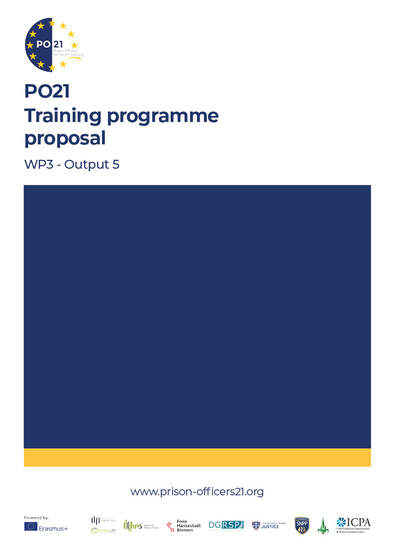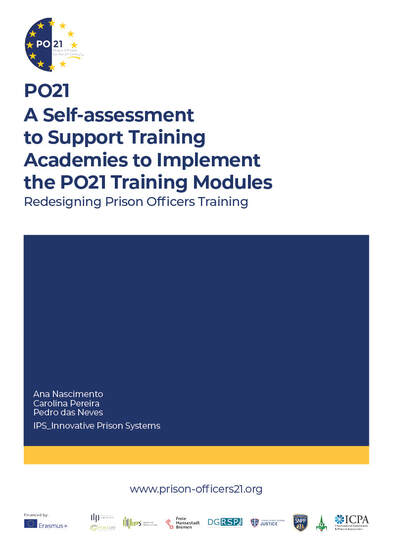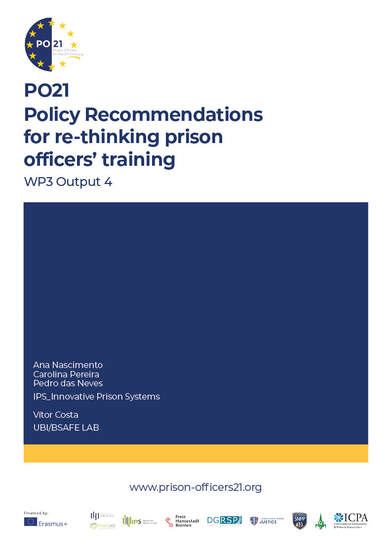Training
Training Programme
Proposal
|
The Prison Officer Training Programme proposal presents a Vocational Educational Training course with a modular structure comprising 28 modules, totalling 1254h hours, divided into 627 hours of theory and 627h of practice.
The flexibility of this modular structure allows for its application according to the needs of each context. Hence, it can be used in its complete format as a comprehensive initial training course for prison officer recruits. It can also be used in continuous training by choosing which modules cover the topics of interest. It can also be integrated into an existing training plan or include additional training modules. Thus, the modules can be organised according to flexible training paths depending on the objectives of the training systems. They can be delivered in face-to-face training sessions; most can be part of e-learning or b-learning strategies. This training programme proposal was developed based on a comprehensive needs analysis carried out under different approaches such as DACUM sessions in 3 countries (Germany, Portugal and Romania), a training needs analysis survey to POs, and reports from EU countries regarding their prison officers’ training features. It was built through a participative approach by the project technical team and finetuned in the PO21 workshops, which gathered 72 participants (PO, Prison directors, educators, trainers and psychologists) and completed by expert PO trainers. It was built upon the terminology used by the PO to categorise their main and specific duties, current and future needs and challenges, frames on ESCO and VET for sustainable competitiveness, social fairness and resilience (R: 2020/C 417/01) vocabulary and layout, follows the quality standards for EQAVET (2020) and frames on the Council of Europe Recommendations regarding prison staff training. |
Training
Self-assessment to Support
Training Academies to
Implement the PO21 Training
Modules
|
This self-assessment aims to support the redesign of existing PO training programmes and support the implementation of the proposed PO21 training modules.
Through a structured approach, correctional training professionals are invited to reflect to what extent the PO21 competencies and learning results are considered in the current training programme provided by their respective institutions, and to what extent these are relevant to PO training. Relevant but non-existing (or not sufficiently covered) competencies and learning results should trigger actions redesign the existing training programme. |
Policy
Recommendations
|
The Policy Recommendations paper for re-thinking prison officers’ training resulted from an extensive research process carried out in the scope of the PO21 Project. The forty-three recommendations focus on improving and fostering Prison Officers training and professional mobility throughout Europe, on valuing the Prison Officers profession and personal and professional well-being of these professionals.
|





